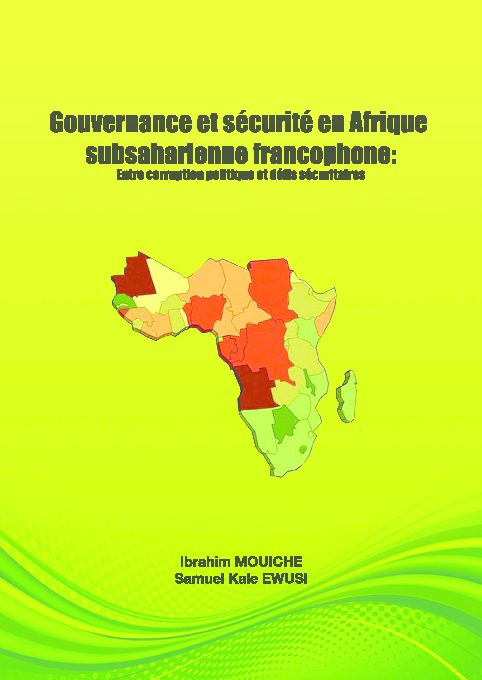Senegal, Gabon, Madagascar, And Beyond: PwC's Departure From Africa

Table of Contents
Reasons Behind PwC's African Market Exits
Several interconnected factors seem to have contributed to PwC's strategic decision to leave certain African markets. While the firm hasn't publicly provided a comprehensive explanation, analyzing the current landscape reveals plausible reasons.
Financial Performance and Profitability
One significant factor is likely linked to financial performance and profitability. Some African markets, despite their growth potential, present unique challenges.
- Underperformance in Specific Markets: Certain countries may not have yielded the expected return on investment for PwC, potentially due to lower client demand or difficulties in scaling operations.
- Economic Instability and Regulatory Hurdles: Economic instability, fluctuating currency values, and complex regulatory environments in some African nations can impact profitability and increase operational risks. Navigating these hurdles can prove costly and time-consuming.
- Cost-Benefit Analysis: PwC likely conducted a rigorous cost-benefit analysis before making these decisions. The costs associated with operating in these markets, weighed against the potential profits, might have led to the conclusion that a withdrawal was the most prudent strategic option. This is a crucial element in understanding the PwC profitability Africa situation.
Strategic Realignment and Focus
The PwC Africa withdrawal might also reflect a broader global strategic realignment.
- Focus on More Profitable Regions: PwC could be prioritizing markets offering higher growth potential and quicker returns on investment. This strategic shift might involve focusing resources on other regions considered more strategically important.
- Restructuring within African Operations: The departures might be part of a larger restructuring effort within PwC's African operations. This could involve streamlining operations, consolidating resources, and focusing on markets where they can achieve greater market penetration and influence.
- Long-Term Vision for Africa: While exiting some markets, PwC's long-term vision for Africa might remain positive. The company could be repositioning itself for future growth in other African nations with more stable economies and better business environments. This shift in focus underscores the complexities of PwC strategy Africa.
Competition and Market Saturation
The competitive landscape within the African accounting and consulting sector is another crucial factor.
- Presence of Other Major Players: PwC faces fierce competition from other major international and local firms vying for market share. This competition can pressure profit margins and limit growth opportunities.
- Market Saturation in Certain Areas: In some markets, the accounting and consulting sector might be experiencing saturation, limiting opportunities for expansion and growth for firms like PwC. This contributes to the intense competition in Africa.
- PwC Market Share Africa: The company may have determined that maintaining its market share in certain areas wasn't economically viable given the competitive pressure.
Impact of PwC's Departure on the Affected Countries
The PwC departure Africa has significant implications for the countries affected.
Loss of Expertise and Jobs
- Job Losses: The most immediate impact is the potential loss of jobs for PwC employees in Senegal, Gabon, Madagascar, and potentially other countries. This loss of employment has severe repercussions on local communities.
- Loss of Expertise and Skills: The departure represents a loss of valuable expertise in accounting, auditing, and consulting. This skill gap can be detrimental to local businesses and hinder economic growth.
- Economic Impact: The reduced capacity in professional services can negatively affect economic activity, investment, and overall development within affected countries. This highlights the significant economic impact PwC can have.
Implications for Businesses and Investors
- Challenges for Businesses: Businesses that relied on PwC's services will face challenges in finding suitable replacements, potentially leading to disruptions and increased costs.
- Impact on Foreign Direct Investment (FDI): The departure of a global firm like PwC could negatively affect investor confidence, potentially reducing foreign direct investment in the affected countries. This will directly impact FDI Africa.
- Alternative Service Providers: Existing local and international firms will likely step in to fill the gap left by PwC. However, whether these firms have the capacity to fully meet the demand remains to be seen. This requires careful consideration of alternative service providers Africa.
Conclusion: Navigating the Changing Landscape of PwC's Presence in Africa
PwC's withdrawal from certain African markets highlights the complex interplay of financial performance, strategic considerations, and competitive pressures shaping the landscape of professional services on the continent. The reasons behind the PwC Africa withdrawal are multifaceted, emphasizing the challenges of operating in diverse and dynamic African economies. The impact extends beyond immediate job losses, influencing investor confidence and overall economic development. This PwC departure Africa underscores the need for African nations to cultivate a stable and attractive business environment to attract and retain global companies. The future of PwC's involvement in Africa will likely be marked by a more selective and strategic approach, focusing on markets offering greater long-term potential. We encourage you to share your insights on the PwC Africa withdrawal and its implications. Further research into the future of accounting in Africa and the impact of global firms on African economies is crucial. Let's discuss this further using #PwCAfrica #AfricanEconomy #AccountingAfrica.

Featured Posts
-
 Downtown Louisville Residents Evacuated Following Dangerous Gas Leak
Apr 29, 2025
Downtown Louisville Residents Evacuated Following Dangerous Gas Leak
Apr 29, 2025 -
 Aiims Reports Surge In Young Adults With Adhd Exploring Potential Triggers
Apr 29, 2025
Aiims Reports Surge In Young Adults With Adhd Exploring Potential Triggers
Apr 29, 2025 -
 Austria Wien Jancker Folgt Auf Pacult
Apr 29, 2025
Austria Wien Jancker Folgt Auf Pacult
Apr 29, 2025 -
 Porsche
Apr 29, 2025
Porsche
Apr 29, 2025 -
 Conquer Nyt Spelling Bee 360 Feb 26th Tips And Answers
Apr 29, 2025
Conquer Nyt Spelling Bee 360 Feb 26th Tips And Answers
Apr 29, 2025
Latest Posts
-
 Our Farm Next Door A Familys Story Of Farming And Community
Apr 30, 2025
Our Farm Next Door A Familys Story Of Farming And Community
Apr 30, 2025 -
 Meet Amanda Clive And The Kids A Day In The Life Of Our Farm Next Door
Apr 30, 2025
Meet Amanda Clive And The Kids A Day In The Life Of Our Farm Next Door
Apr 30, 2025 -
 Life On Our Farm Next Door Amanda Clive And Their Family
Apr 30, 2025
Life On Our Farm Next Door Amanda Clive And Their Family
Apr 30, 2025 -
 Meet Amanda Clive And Kids A Day In The Life Of Our Farm Next Door
Apr 30, 2025
Meet Amanda Clive And Kids A Day In The Life Of Our Farm Next Door
Apr 30, 2025 -
 Our Farm Next Door Amanda Clive And The Kids Country Life
Apr 30, 2025
Our Farm Next Door Amanda Clive And The Kids Country Life
Apr 30, 2025
